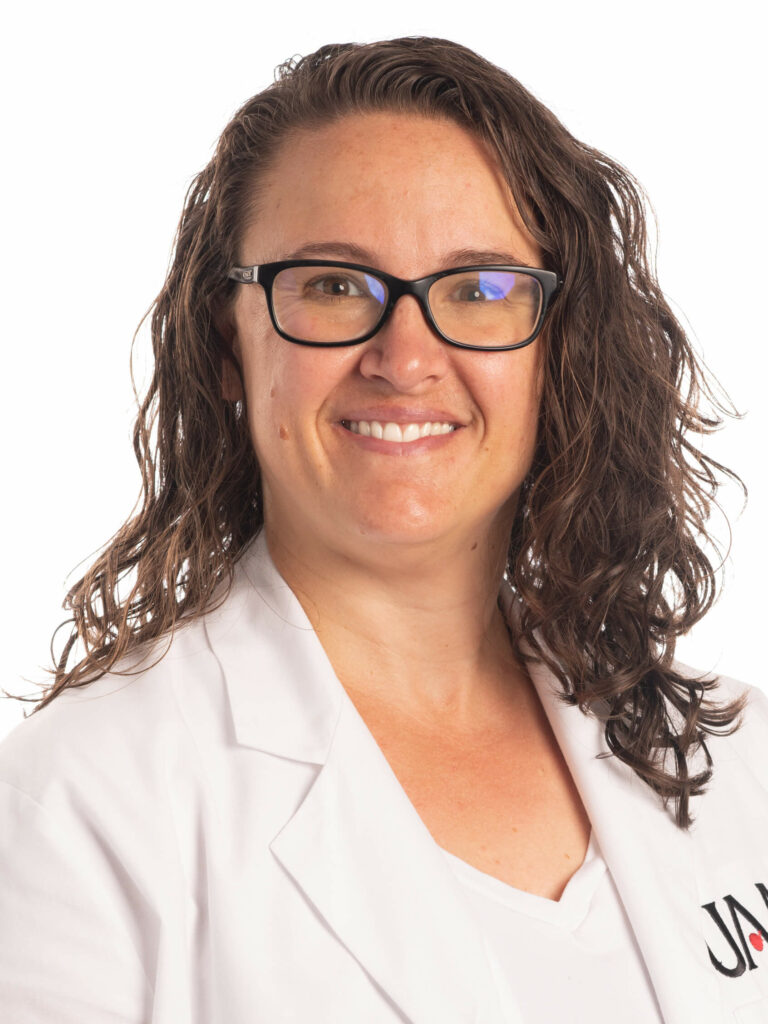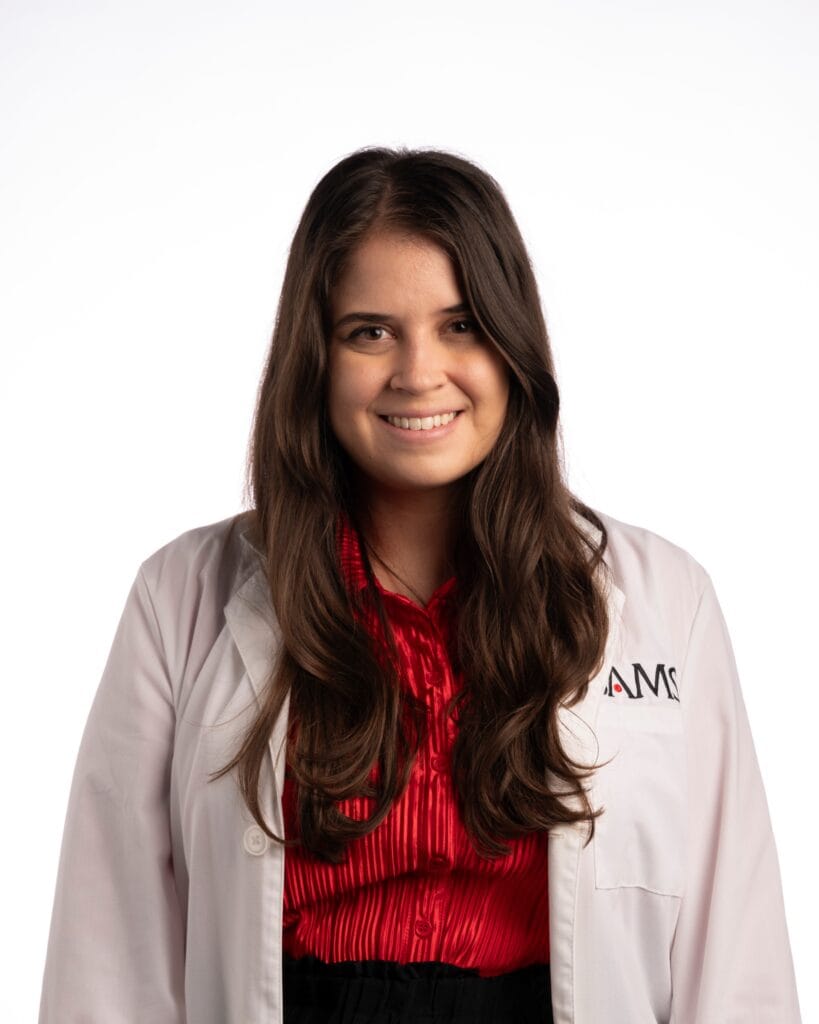The Department of Psychiatry at the University of Arkansas for Medical Sciences (UAMS) has an opening for a one-year post-doctoral resident in Integrated Specialty Care for the training year 2025-2026. The fellowship start date is Aug. 1, 2025.
Description

The goal of the fellowship is to provide the fellow with clinical training focused on developing advanced competencies in integrated behavioral health care and health psychology to prepare for independent practice in an integrated care academic medical center environment. We aim to prepare the fellow to leave fellowship as an early career psychologist who can thrive in multidisciplinary, primary and specialty health care settings, provide high-quality evidence-based care. We seek to recruit fellows who are interested in improving population health and health equity through interprofessional collaboration and education.
Integrated Primary Care Setting
The fellow will provide outpatient care to diverse primary care populations in the UAMS Internal Medicine and Family Medicine programs. This will include experience both in-person and virtual integration into primary care clinics. Fellows will have the opportunity to work with a wide range of patients in a fast-paced setting and also work with patients presenting the full spectrum of problems in primary care from prevention to multiple complex and chronic medical conditions. The fellow will learn how to adapt current skills and learn targeted interventions to fully integrated into the primary care setting. The fellow will receive advanced training in primary care behavioral health (PCBH) and have experience working within a Collaborative Care (CoCM) model with psychiatry and psychiatry fellows. The behavioral health integration (BHI) team includes behavioral health consultants (BHCs), psychology and social work trainees, behavioral health care managers (BHCM’s), psychiatrists and psychiatry residents. The fellow will be an integral part of the UAMS BHI team and will have the opportunity to provide vertical supervision as available and appropriate. In addition to experience in integrated behavioral health, the fellow will work closely with the population health team to provide interventions to patients identified as needing behavioral health support on UAMS’ chronic disease pathways (e.g., diabetes, hypertension). There will also be opportunities for supervision of social work interns and the integrated health track psychology intern.
Acute Rehabilitation Neuropsychology Service
Setting: Baptist Health Rehabilitation Institute (BHRI) – Little Rock, is Arkansas’ largest and most comprehensive physical medicine and rehabilitation hospital. BHRI includes both inpatient, outpatient, and specialty rehabilitation clinics. In addition, BHRI is the only facility in Arkansas certified in brain injury, spinal cord injury, stroke, and amputee rehab. BHRI is known for excellence in inpatient acute rehabilitation with CARF accredited programming that focuses on helping patients restore as much function as possible after a major medical event. All inpatient therapy is focused on life after rehab and resolves around helping patients regain capabilities that will help them transition back home. For patients admitted to BHRI, a minimum of 3 hours per day, 5 days per week, is spent in customized therapy sessions with a variety of health professionals, including: physical medicine and rehabilitation, rehabilitation nursing, allied health, medical social work and care coordination, neuropsychology, clinical dietitian, pharmacy, respiratory therapy, adaptive driving, and therapeutic recreation.
Population Served: BHRI provides acute rehabilitation services to adults with the following conditions, and commonly polytrauma: amputation, brain injury, cancer, cardiac conditions, decreased ability to communicate with others, impaired ability to swallow, impaired balance and/or coordination, impaired strength or loss of motion in an extremity, impaired ability to perform daily activities (e.g., eating, grooming, dressing, or bathing), impaired mobility in the home or community, neurological disorders, orthopedics, Parkinson’s Disease, spinal cord injury, stroke, and more
Neuropsychology Service: The clinical neuropsychology service at BHRI is tasked with providing wrap around psychological services to patients during their inpatient stay. Neuropsychology services are initiated by physician referral to the program to target a variety of presentations that can impact successful rehabilitation including:
- Cognitive Impairment
- Adjustment to Injury; including depression and anxiety
- PTSD
- Emotional dysregulation
- Agitation
As such, neuropsychological services include evidenced based assessment and intervention services both in office, at bedside, on the therapy floor, and when co-treating with other providers to help maximize patient success in recovery and in achieving patient centered goals. Services include:

- Abbreviated psychological assessment: Evaluation of mood and personality for accurate diagnoses and when needed to delineate premorbid factors that may be impacting patient presentation and success.
- Abbreviated and serial cognitive assessment: Evaluation of orientation, awareness, cognition; most often aphasia and amnesia, and progress in therapies to provide updated recommendations for the patient, family, and rehabilitation team.
- Comprehensive neuropsychological evaluations: Evaluations are typically requested for determination of return to work, school, and home to help inform treatment planning. In addition, we conduct evaluations of premorbid neurodevelopmental conditions and their impact on current functioning as well as evaluations to determine the presence/influence of neurodegenerative conditions. Neuropsychological test administration, scoring, interpretation, and report writing is the focus of this specialty area. Of note, a specific focus in writing various ADA accommodations for employers and higher education institutions is highlighted.
- Assessment of agitated behavior: Whenever needed, assessment of agitation using objective measures is requested. The neuropsychology team also creates adaptive strategies within a multi-disciplinary team to inform different models of de-escalation techniques/strategies to improve patient care and outcomes.
- Adjustment to injury counseling: Initial sessions include conducting comprehensive intake evaluations with a rehabilitation lens. Follow-up sessions include targeting psychological changes, grief, and psychosocial challenges associated with new injuries and diagnoses.
- Family counseling: Working with families to help improve education and to encourage proactive positive emotional adjustment; opportunities for family support groups available.
- Rehab psychology: Focusing on building education and awareness regarding diagnoses, problem solving possible barriers to success, improving healthcare management, increasing health literacy, and implementing behavioral techniques to improve sleep, pain management, and other health concerns such as smoking cessation and overcoming addiction.
- Co-treatment: Collaboration with other team members to provide live feedback of patient congitive and emotional symptoms and to mentor and guide use of adaptive coping skills.
- Consultation: Collaborating with other team members to share information about psychological and congitive diagnoses and their nuances to improve treatment planning.
- Training: Providing CEUs to specialized healthcare practitioners on psychological and neuropsychological topics/practice (i.e., use trauma informed care, behavioral strategies, agitation management, and other evidenced based techniques) relevant to rehabilitation medicine to increase multidisciplinary knowledge.
Training Overview

The BHRI rotation will begin with active clinical shadow experiences with all members of the rehabilitation team. Thereafter, fellows will be provided opportunity to observe the range of neuropsychological services with current patients. Depending on individual skill, the fellow will then begin providing clinical services to include intakes with patients referred for psychological assessment and leading adjustment to injury sessions. In addition, once the fellow has an established caseload, either additional rehabilitation psychology services and/or neuropsychological assessment services will be integrated. Thereafter, additional consultation and training opportunities can be included, as appropriate.
Consultation Liaison (C/L) Psychology Service
The fellow will provide inpatient care to diverse populations across the inpatient units at UAMS. This will include working with individuals who present to UAMS with injury or complex medical conditions in a fast-paced setting. The fellow will learn how to adapt current skills into inpatient medical settings. This position offers a unique opportunity to work within a multidisciplinary healthcare team, providing psychological support to patients across various medical settings. The fellow will gain experience brief assessment, intervention, and consultation for patients facing psychological challenges related to acute and chronic medical conditions. Research opportunities may be available.
Key Responsibilities
- Conduct brief psychological assessments of patients in inpatient settings
- Collaborate with medical teams to develop integrated treatment plans to address both psychological and medical needs
- Provide evidence-based interventions (e.g., crisis intervention, psychotherapy, psychoeducation)
- Participate in team meetings, case discussions and interdisciplinary rounds to advocate for patients’ needs
Sample UAMS IHC Fellow Schedule
| Monday | Tuesday | Wednesday | Thursday | Friday | |
| AM | Integrated Primary Care | Integrated Primary Care | Consultation/Liaison (C/L) | Integrated Primary Care | Consultation/Liaison (C/L) |
| Lunch | |||||
| PM | BHRI Neuropsychology Service | Integrated Primary Care | BHRI Neuropsychology Service | Integrated Primary Care | Consultation/Liaison (C/L) |
Benefits: The current salary is $52,389. Health insurance is available for family or single at a reasonable rate. All fees associated with EPPP and the licensure process (preparation materials, fees, etc.) is covered in full by the department. The fellow will also receive support for conference attendance with successful acceptance of a presentation. Vacation, sick leave, and professional leave are standard. The fellow will have their own office with up-to-date technology support.
Qualifications: Qualified applicants will have successfully completed a Ph.D. or Psy.D. in clinical or counseling psychology from an APA-accredited doctoral program including an APA accredited internship with a focus in health psychology by their start date. Experience working in integrated care settings and especially some exposure to pre-surgical psychological evaluations is preferred.
Applications: The program strives to recruit and retain early career professionals who represent, and are passionate about, the communities served by UAMS. Applicants from diverse backgrounds with interest in social justice and underrepresented populations are strongly encouraged to apply. Required application materials include:
- Cover Letter
- Current CV
- Three letters of reference, one of which must be from internship
Application materials should be emailed to the Director of Training, Dr. Jennifer Gess, at gessjenniferl@uams.edu. Please feel free to contact any or each of the supervisors above with any questions about the fellowship (emails included below). The application deadline is Dec. 10 and interviews will begin in January 2025.
Tisha Deen, Ph.D.
Director of Behavioral Health Integration, Integrated Medicine Service Line
Associate Professor, Departments of Psychiatry
University of Arkansas for Medical Sciences
deentishal@uams.edu
Chrystal Fullen, Psy.D.
Clinical Neuropsychologist, Assistant Professor
University of Arkansas for Medical Sciences; Psychiatry & Surgery, College of Medicine
Baptist Health Rehabilitation Institute; Neuropsychology Service
cfullen@uams.edu
Laura Rohm, Psy.D.
Clinical Psychologist, Assistant Professor
Departments of Psychiatry & Surgery
University of Arkansas for Medical Sciences
lrohm@uams.edu
